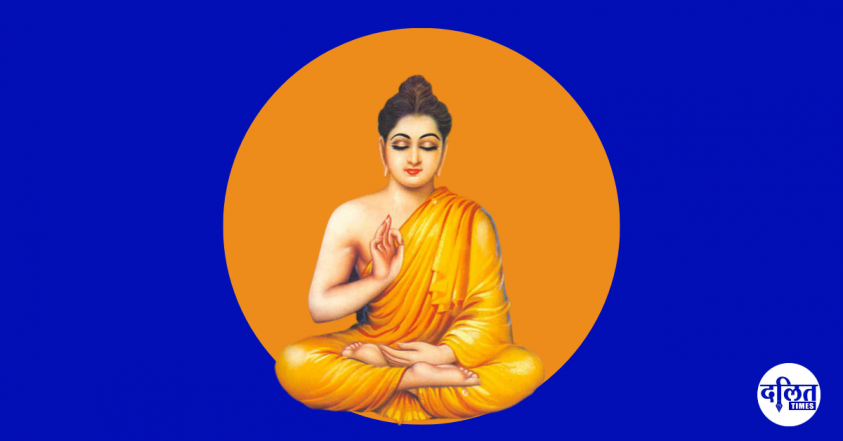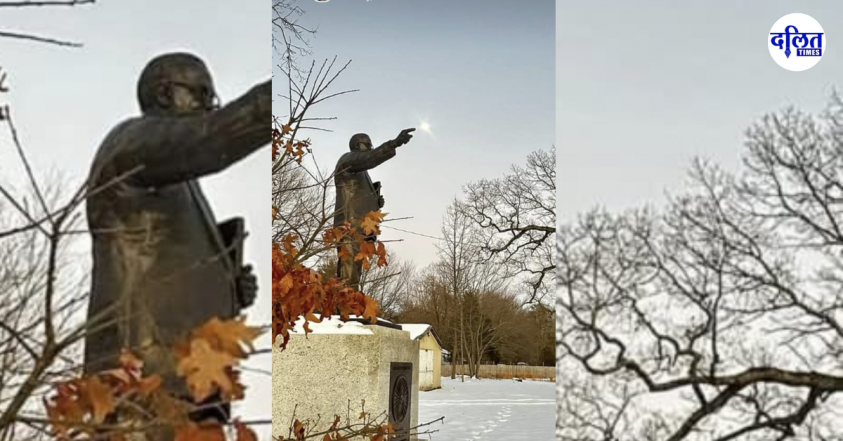“Peace comes from within. Do not seek it without.” These timeless words of Gautama Buddha, the great sage of the Shakya clan, continue to guide millions across the world today. As we observe Buddha Poornima, also known as Vesak, we are reminded of the profound life and teachings of the Enlightened One—a life of dedication, non-violence, and compassionate wisdom.
Buddha Poornima is not just a religious festival. It is considered a triply blessed day, commemorating the birth, enlightenment (Bodhi), and Mahaparinirvana (final passing) of Siddhartha Gautama, who became the Buddha. Born over 2,500 years ago in Lumbini (present-day Nepal), Siddhartha was a prince who renounced luxury and power in pursuit of truth and liberation from suffering.
In 1999, the United Nations recognised Vesak as an international observance, honouring it as the UN Day of Vesak, and marking the importance of Buddhism as a world tradition of peace, tolerance, and human dignity.
The Life of Buddha: A Journey of Sacrifice and Enlightenment
From the moment Siddhartha Gautama walked away from his palace, leaving behind his wife and son, he chose a path of self-sacrifice for a universal cause: to understand and end the suffering of all beings. After years of ascetic practices, reflection, and deep meditation, he attained enlightenment under the Bodhi tree in Bodh Gaya. He became the Buddha—the Awakened One.
He did not keep his wisdom to himself. For the rest of his life, the Buddha walked across the Indian subcontinent, teaching people from all backgrounds—the poor, the rich, the rulers, the outcastes—offering a path based on compassion, mindfulness, and inner freedom.
The Fundamental Teachings of Buddhism
At the heart of the Buddha’s teaching are the Four Noble Truths:
- Dukkha – Life involves suffering.
- Samudaya – There is a cause to this suffering (attachment, desire, ignorance).
- Nirodha – It is possible to end suffering.
- Magga – The path to the cessation of suffering is the Eightfold Path.
The Eightfold Path includes:
- Right View
- Right Intention
- Right Speech
- Right Action
- Right Livelihood
- Right Effort
- Right Mindfulness
- Right Concentration
These are not commandments but principles of ethical living, mental discipline, and wisdom.
Also Read : Stripped of Dignity, Paraded by Upper Caste: The Public Humiliation of a Dalit Man
Non-Violence, Compassion, and Harmony: Eternal Principles
The Buddha’s emphasis on ahimsa (non-violence) and karuna (compassion) stands as a pillar of his philosophy. As he taught:
“Hatred does not cease by hatred, but only by love; this is the eternal rule.”
His teachings promote inner transformation as the first step to transforming society. Instead of imposing change from the outside, Buddhism insists that true peace can only arise from understanding, acceptance, and inner awareness.
Buddhism in the Modern World: Relevance and Urgency
In a world beset by conflicts, ecological crises, inequality, and anxiety, the Buddha’s teachings are more relevant than ever. The call to cultivate mindfulness, non-attachment, and compassion is not just spiritual—it is political, ecological, and deeply human.
- In the face of violence, Buddhism teaches non-violence.
- In the face of division, it teaches interdependence and unity.
- In the face of greed, it calls for contentment and simplicity.
- In the face of identity and ego, it reminds us of anatta—the non-self, the illusion of a permanent ‘I’.
Leaders like Dr. B.R. Ambedkar recognised this transformative potential. In his final act of resistance against caste oppression, he and millions of Dalits embraced Buddhism as a path of equality, dignity, and liberation.

The Messages of Buddha Purnima
On this sacred day, let us not simply remember the Buddha. Let us live his message. In every act of kindness, in every moment of mindfulness, in every refusal to hate—we honour his life.
President of India Droupadi Murmu: “On the auspicious occasion of Buddha Poornima, I extend my heartfelt greetings and best wishes to all fellow citizens and the followers of Lord Buddha all over the world. The immortal message of non-violence, love, and kindness given by Bhagwan Buddha, the embodiment of compassion, is the basic mantra for the welfare of mankind. His ideals strengthen our faith in eternal values of equality, harmony, and social justice. His teachings inspire us to live a life based on morality.”
Prime Minister of India Narendra Modi: “Best wishes to all countrymen on Buddha Poornima. Lord Buddha’s message, based on the principles of truth, equality, and harmony, has been a guide for humanity. His life, dedicated to sacrifice and penance, will always inspire the world community towards compassion and peace.”
Uttarakhand Chief Minister Pushkar Singh Dhami: “Mahatma Buddha gave importance to truth along with good deeds. He inspired people to know the truth and walk with the truth in life.”
Mayawati: “On his birth anniversary today, salutations to Tathagata Gautam Buddha, who earned India the title of Jagadguru by spreading the light of truth, non-violence, and humanity in the world. Hearty greetings to his followers on Buddha Poornima and best wishes for a happy life free from terror, etc.”
Chandrashekhar Azad: “The society will always be inspired by the messages of wisdom, morality, compassion, truth, friendship, love, world peace, brotherhood, and human welfare of Tathagata Buddha. Jai Bhim, Namo Buddha.”
Rahul Gandhi:”Gautam Buddha’s thoughts showed humanity the path of truth, compassion, and non-violence. His life, even today, guides us to follow the ideals of peace, love, and harmony.”
Also Read : Four Months of Thirst: The Social Boycott of 70 Dalit Families in Haryana’s Madanhedi Village
Ahimsa: The Rejection of War as a Moral Failure
At the heart of Buddha’s teachings is ahimsa, or non-violence. This principle is not passive—it is a powerful form of resistance. War, from a Buddhist perspective, is the culmination of greed (lobha), hatred (dvesha), and delusion (moha)—the three poisons the Buddha taught must be eradicated for liberation.
“Victory breeds hatred. The defeated live in pain. Happily the peaceful live, giving up victory and defeat.” (Dhammapada, Verse 201)
Buddha explicitly rejected vengeance and militarism, emphasising that violence begets more violence, and that hatred cannot end through hatred.
The Concept of Dukkha and the Futility of War
Buddha’s First Noble Truth is that life involves dukkha—suffering, dissatisfaction, impermanence. War magnifies this suffering. It destroys families, homes, ecosystems, and societies. Even the victors of war are left with moral injury and spiritual emptiness.
Buddha taught that true liberation does not come from external conquest, but from conquering the self—from overcoming desire, ego, and illusion.
“Greater than the conquest of a thousand battles is the conquest of one’s own self.” (Dhammapada, Verse 103)

Interdependence and the Illusion of the ‘Enemy’
In Buddhism, all things arise in interdependence. The idea of a separate, fixed “enemy” is an illusion. Buddhism teaches anatta (non-self) and an interconnected world, where harming others ultimately harms oneself.
War constructs rigid identities—“us” versus “them”—but Buddhist wisdom dissolves these categories and calls for empathy even toward aggressors, without justifying their actions.
Compassion as a Revolutionary Principle
The Buddha taught that even in the face of violence, one must not abandon compassion. His parable of the saw (MN 21) tells disciples that even if bandits saw you limb from limb, one must maintain a mind of loving-kindness. This is not submission—it is a radical commitment to human dignity over domination.
“Even if someone were to harm you, you should cultivate a heart of love and compassion.” (Majjhima Nikāya)
Buddhist Resistance to War in History
Throughout history, many Buddhist leaders and communities have refused to participate in war. King Ashoka, after witnessing the bloodshed of the Kalinga war, renounced violence and adopted Buddhism, promoting Dhamma (righteousness) instead of empire.
In modern times, Buddhist monks in countries like Vietnam, Tibet, Myanmar, and Sri Lanka have protested against militarism, occupation, and oppression—sometimes even self-immolating to awaken the conscience of the world.
Inner Peace as the Foundation of Peaceful Societies
Buddha insisted that world peace begins with inner peace. A person who has cultivated equanimity, mindfulness, and compassion will naturally reject war, vengeance, and cruelty. Social structures built on such individuals are less likely to support or sustain violent ideologies.
The Dharma Against War
The Buddha’s teachings are an indictment of war as a failure of human morality and imagination. In a world driven by nationalism, weapons, and conquest, the Dharma stands as a path of courage—not the courage to kill, but the courage to heal. It is a politics of compassion, a resistance to hatred, and a call for a world without domination.
Buddha Poornima reminds us that peace is not the absence of conflict, but the presence of wisdom. As the Buddha said: “Peace comes from understanding and accepting that which is.”
The teachings of Gautama Buddha, when placed in the context of war, offer a radical and deeply human counterpoint to violence, conquest, and domination. His philosophy is not merely a personal spiritual ethic—it is a political stance, a social critique, and a vision of collective transformation rooted in non-violence, compassion, and wisdom.



